-
Use Cases
-
Resources
-
Pricing
Ancient Civilizations
Invention of Writing
3200 BCE
% complete
The invention of writing, around 3200 BCE, marked a significant milestone in human history. It allowed for the recording and preservation of information, leading to the development of complex civilizations and the transmission of knowledge across generations.
Image source: Writing

Construction of the Great Pyramid of Giza
2580 BCE - 2560 BCE
% complete
The construction of the Great Pyramid of Giza, completed around 2560 BCE, stands as a testament to the architectural and engineering prowess of ancient Egypt. It remains one of the Seven Wonders of the Ancient World.
Image source: Great Pyramid of Giza

Fall of the Western Roman Empire
476 CE
% complete
The fall of the Western Roman Empire in 476 CE marked the end of ancient Rome and the beginning of the Middle Ages in Europe. It resulted in significant political, social, and cultural changes throughout the region.
Image source: Fall of the Western Roman Empire
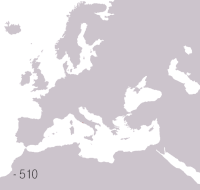
Middle Ages
Viking Age
793 CE - 1066 CE
% complete
The Viking Age, spanning from the late 8th century to the 11th century, saw Norse seafarers from Scandinavia embark on raids, exploration, and trade across Europe, Asia, and even North America. Their influence left a lasting impact on various regions.
Image source: Viking Age

Battle of Hastings
Oct 14, 1066
% complete
The Battle of Hastings in 1066 was a pivotal event in English history. It resulted in the Norman conquest of England by William the Conqueror, forever altering the political and cultural landscape of the British Isles.
Image source: Battle of Hastings

Black Death
1347 - 1351
% complete
The Black Death, a devastating pandemic caused by the bubonic plague, ravaged Europe between 1347 and 1351. It caused widespread death and social upheaval, profoundly impacting medieval society and leading to significant changes in labor and economic systems.
Image source: Black Death

Renaissance and Enlightenment
Renaissance
1300 - 1699
% complete
The Renaissance, a period of cultural and intellectual rebirth, emerged in Italy during the 14th century and spread throughout Europe until the 17th century. It witnessed advancements in art, science, literature, and philosophy, marking a transition from the Middle Ages to the modern era.
Image source: Renaissance
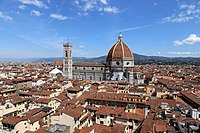
Age of Exploration
1400 - 1799
% complete
The Age of Exploration, spanning from the 15th to the 18th centuries, saw European explorers venture into uncharted territories, opening up new trade routes, establishing colonies, and expanding the reach of European powers across the globe.
Image source: Age of Discovery

Gutenberg's Printing Press
1440
% complete
Johannes Gutenberg's invention of the printing press in 1440 revolutionized the dissemination of knowledge. It enabled the mass production of books, leading to increased literacy rates, the spread of ideas, and the democratization of information.
Image source: Printing press

Scientific Revolution
1500 - 1699
% complete
The Scientific Revolution, occurring from the 16th to the 17th centuries, marked a paradigm shift in the way people understood the natural world. It was characterized by advancements in mathematics, physics, astronomy, and the development of the scientific method.
Image source: Scientific Revolution

Modern Era
Industrial Revolution
1700 - 1899
% complete
The Industrial Revolution, spanning from the 18th to the 19th centuries, marked a significant shift from agrarian, handmade production to mechanized manufacturing and urbanization. It transformed society, economies, and labor practices.
Image source: Industrial Revolution

American Revolution
1775 - 1783
% complete
The American Revolution, fought between 1775 and 1783, resulted in the independence of the Thirteen Colonies from British rule, leading to the formation of the United States of America and inspiring other independence movements around the world.
Image source: American Revolution

French Revolution
1789 - 1799
% complete
The French Revolution, occurring from 1789 to 1799, was a period of radical social and political upheaval in France. It led to the overthrow of the monarchy, the Reign of Terror, and the rise of Napoleon Bonaparte.
Image source: French Revolution

American Civil War
1861 - 1865
% complete
The American Civil War, fought between 1861 and 1865, was a conflict between the Northern states (Union) and the Southern states (Confederacy) over issues of slavery, states' rights, and the preservation of the Union.
Image source: American Civil War
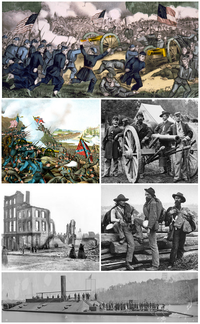
World War I
1914 - 1918
% complete
World War I, lasting from 1914 to 1918, was a global conflict involving major world powers. It resulted in unprecedented destruction, loss of life, and political realignments, setting the stage for subsequent geopolitical developments.
Image source: World War I
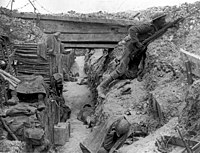
Russian Revolution
1917 - 1923
% complete
The Russian Revolution, occurring from 1917 to 1923, led to the overthrow of the Russian monarchy and the establishment of the first communist state. It had profound implications for Russia and the world, shaping the course of the 20th century.
Image source: Russian Revolution

Great Depression
1929 - 1939
% complete
The Great Depression, beginning with the stock market crash in 1929, was a severe worldwide economic downturn. It resulted in widespread unemployment, poverty, and social unrest, leaving a lasting impact on global economies and the development of social safety nets.
Image source: Great Depression
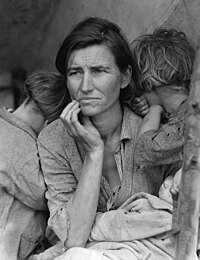
World War II
1939 - 1945
% complete
World War II, fought from 1939 to 1945, was the deadliest conflict in human history. It involved major powers from around the world and resulted in the Holocaust, the use of atomic weapons, and the reshaping of global alliances and geopolitical boundaries.
Image source: World War II

Cold War
1947 - 1991
% complete
The Cold War, lasting from 1947 to 1991, was a period of political tension and rivalry between the United States and the Soviet Union. It shaped global politics, led to proxy wars, and culminated in the collapse of the Soviet Union.
Image source: Cold War
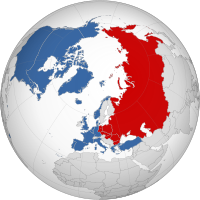
Fall of the Berlin Wall
Nov 9, 1989
% complete
The fall of the Berlin Wall in 1989 symbolized the end of the Cold War and the reunification of East and West Germany. It represented a turning point in European history and marked the beginning of significant geopolitical transformations.
Image source: Fall of the Berlin Wall

Key Facts
- The prehistoric period includes the Stone Age, Bronze Age, and Iron Age.
- The ancient period covers ancient civilizations such as Egypt, Greece, and Rome.
- The medieval period saw the rise of feudalism and the establishment of powerful empires like the Byzantine Empire.
- The Renaissance period marked a time of great cultural and intellectual revival in Europe.
- The modern period is characterized by significant scientific advancements, industrialization, and globalization.
Source
This Timeline of Historical Periods timeline was generated with the help of AI using information found on the internet.
We strive to make these timelines as accurate as possible, but occasionally inaccurates slip in. If you notice anything amiss, let us know at [email protected] and we'll correct it for future visitors.
Create a timeline like this one for free
Preceden lets you create stunning timelines using AI or manually.
Customize your timeline with one of our low-cost paid plans
Export your timeline, add your own events, edit or remove AI-generated events, and much more
Free
$
0
free forever
No credit card required.
Basic
$
10
/month
billed annually
Cancel anytime.
Pro
$
16
/month
billed annually
Cancel anytime.
Common Questions
Can I cancel anytime?
Yes. You can cancel your subscription from your account page at anytime which will ensure you are not charged again. If you cancel you can still access your subscription for the full time period you paid for.
Will you send an annual renewal reminder?
Yes, we will email you a reminder prior to the annual renewal and will also email you a receipt.
Do you offer refunds?
Yes. You can email us within 15 days of any payment and we will issue you a full refund.
What if I have more questions?
Check out our pricing docs or send us an email anytime: [email protected].